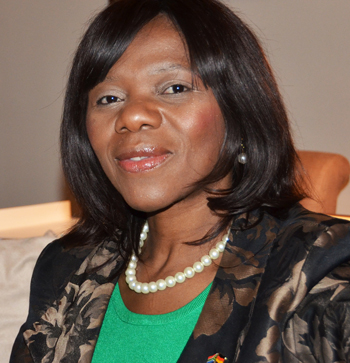Transparency International took the opportunity during her visit to Berlin to accept this year’s Integrity Award, to talk to South Africa’s top corruption fighter Thuli Madonsela about her role as Public Protector, her work and the legacy she hopes to leave behind.
As the Public Protector how do you fight corruption in South Africa?
Our office seeks to be the conscience of the state and ensure that it acts with integrity and justice at all times. We investigate public sector maladministration, fraud and corruption, report on it, and take appropriate action against it. That often means asking for the money [diverted due to corruption] to be paid back or that people be prosecuted.
You’ve been in office since 2009, what impact has your work had in South Africa during this time?
We’ve joined forces with various institutions – including civil society groups like Corruption Watch [Transparency International’s partner in South Africa] – to get the nation to be more aware of corruption in the public sector. We’ve also shown that corruption is a form of maladministration that needs to be fought not just by those in the affected organisations themselves, but also by the media and by society in general.
Through our work we’ve also helped highlight specific forms of public sector corruption that don’t necessarily involve bribery: overcharging on a government contract, awarding a contract that doesn’t go to tender, or tender rigging.
What legacy do you hope to leave behind when your term ends in 2016?
The Public Protector is a team – and I want to leave behind a team that is seasoned and fully competent – so then it won’t matter who leads it or who investigates a case.
I would like to see South Africans recognising that corruption hurts – it eats away at the soul of the nation. I’d like us to get to a stage of realising that we all have a role to play in combating corruption: every time people act they should ask themselves: “Am I adding to the problem of corruption or am I helping solve it?”
When I leave office, I want people to know immediately where to go if they encounter public sector maladministration or corruption. Whistleblowers need to come to us sooner so we can strike while the iron is hot.
What gives you strength to pursue your mandate when people try to discredit your work?
It’s having a purpose-driven approach to your work and your life. You wake up and say “I have a job to do”. It’s like this with the whole Public Protector team. We focus on our purpose: to be the conscience of the state.
The majority of people in government and civil society believe in a corrupt-free South Africa and are doing a lot to take action against it. But a few voices that support impunity get more airtime than they deserve.
How do you tackle investigating those who you account to?
Every investigator in the team uses the same formula, so the name and status of the people we investigate doesn’t matter. Acting without fear or favour means you can investigate anyone.
What are your hopes for the future of South Africa?
We must retain respect for the rule of law – that’s what’s kept my office going for 19 years. If that respect didn’t exist, I would just write a report and people would ignore it. I would like to see that spirit continue, but going forward we need to work more on accountability.
What needs to happen in South Africa so that the corrupt face real consequences for their actions?
We need to strengthen synergies between different institutions and find a way of coming together to close the gaps – so there is smooth transition into prosecution. There also needs to be better enforcement of codes of conduct. Increasingly, we are seeing emphasis placed on being found guilty in a court of law. That suggests that you can break codes of conduct until a court of law calls it crime. It’s unfair to say to people their defence against public sector corruption is the criminal justice system. People entrusted with pubic power should not claim privileges of criminals because you’ve placed them in positions of trust. We should use trust-based avenues to hold leaders accountable.
Read our feature about Thuli Madonsela here.
Carousel image: Transparency International
















 Connect with us on Facebook
Connect with us on Facebook Follow us on Twitter
Follow us on Twitter